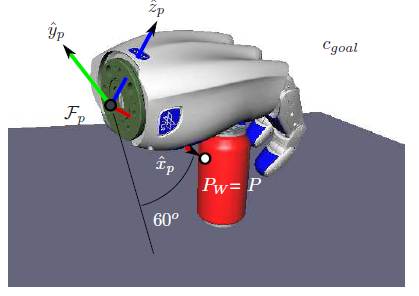Research Project
Multi-hand systems for complex robotized manipulation tasks (MUMA )

 |
TITLE: Multi-hand systems for complex robotized manipulation tasks Acronym: MUMA REFERENCE: DPI2010-15446 PERIOD: 1/1/2011-31/3/2014 PROJECT LEADER: Raúl Suárez Feijóo Email: raul.suarez@upc.edu Phone: +34-934016548/6654 CENTER:Institut de Organització i Control de Sistemes Industrials (IOC) Universitat Politècnica de Catalunya (UPC) KEYWORDS: robotics, grasping, manipulation, dexterous mechanical hands, anthropomorphic hands, teleoperation |
 En Castellano
/
En Castellano
/
 In English
In English
